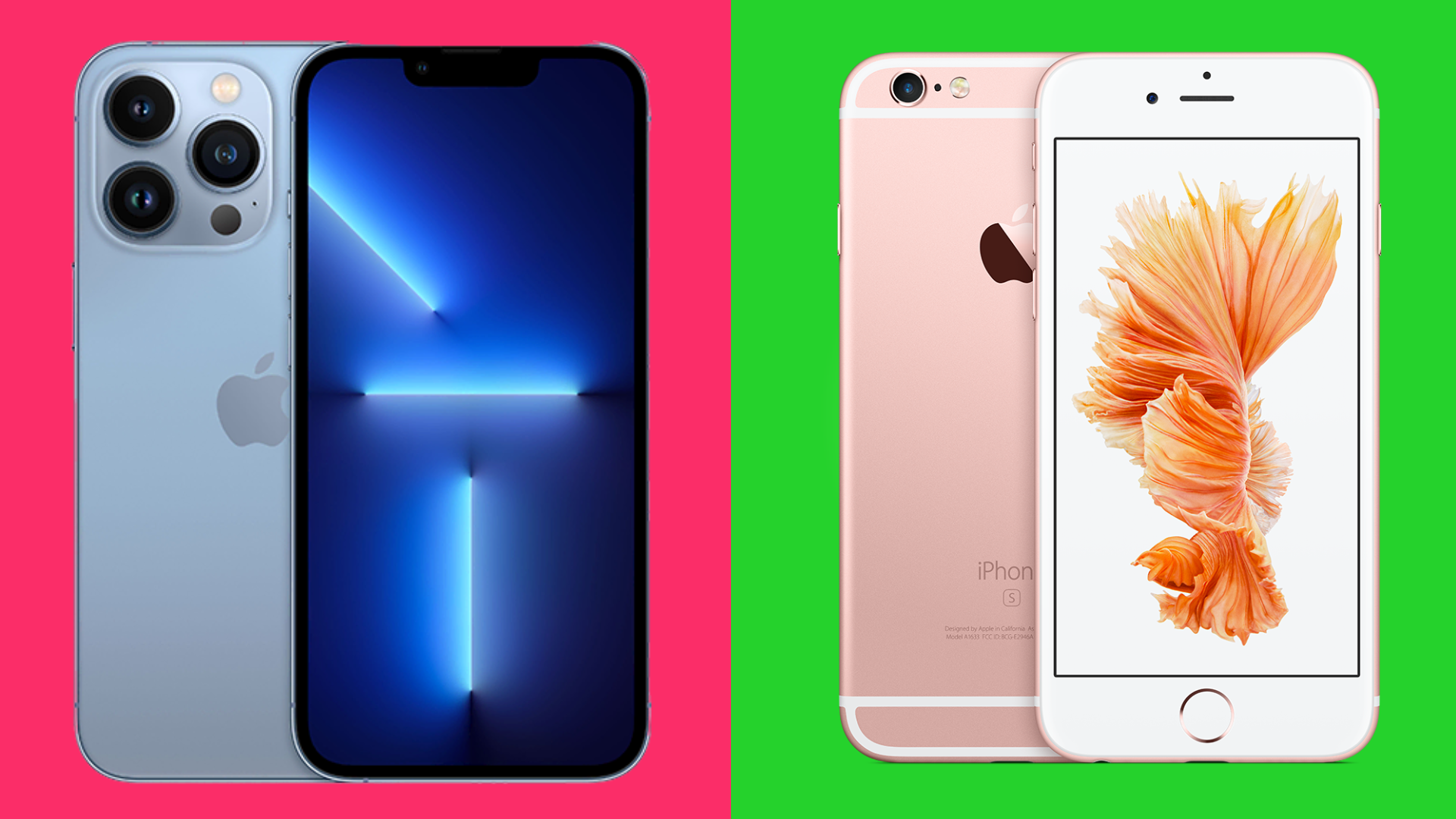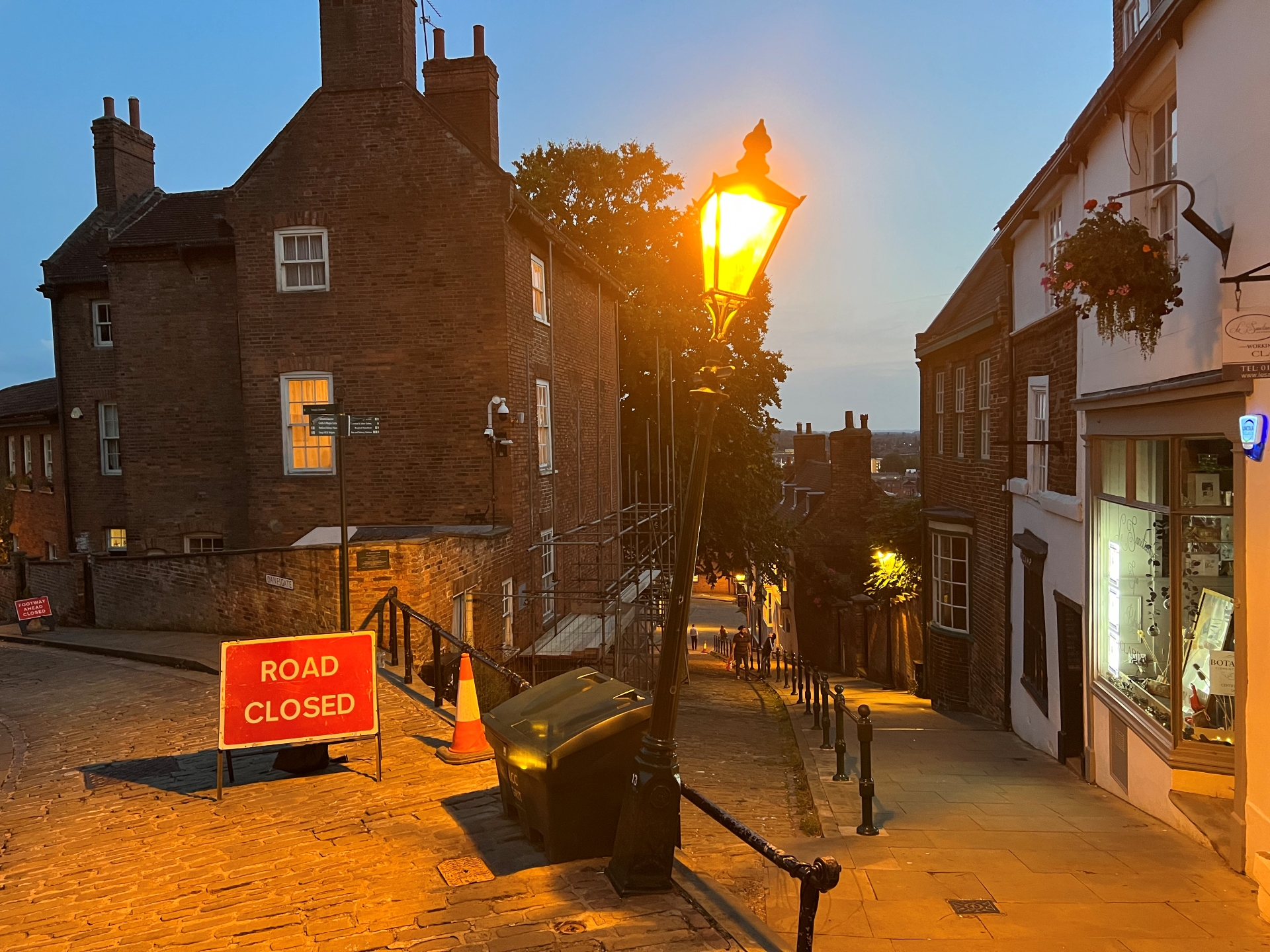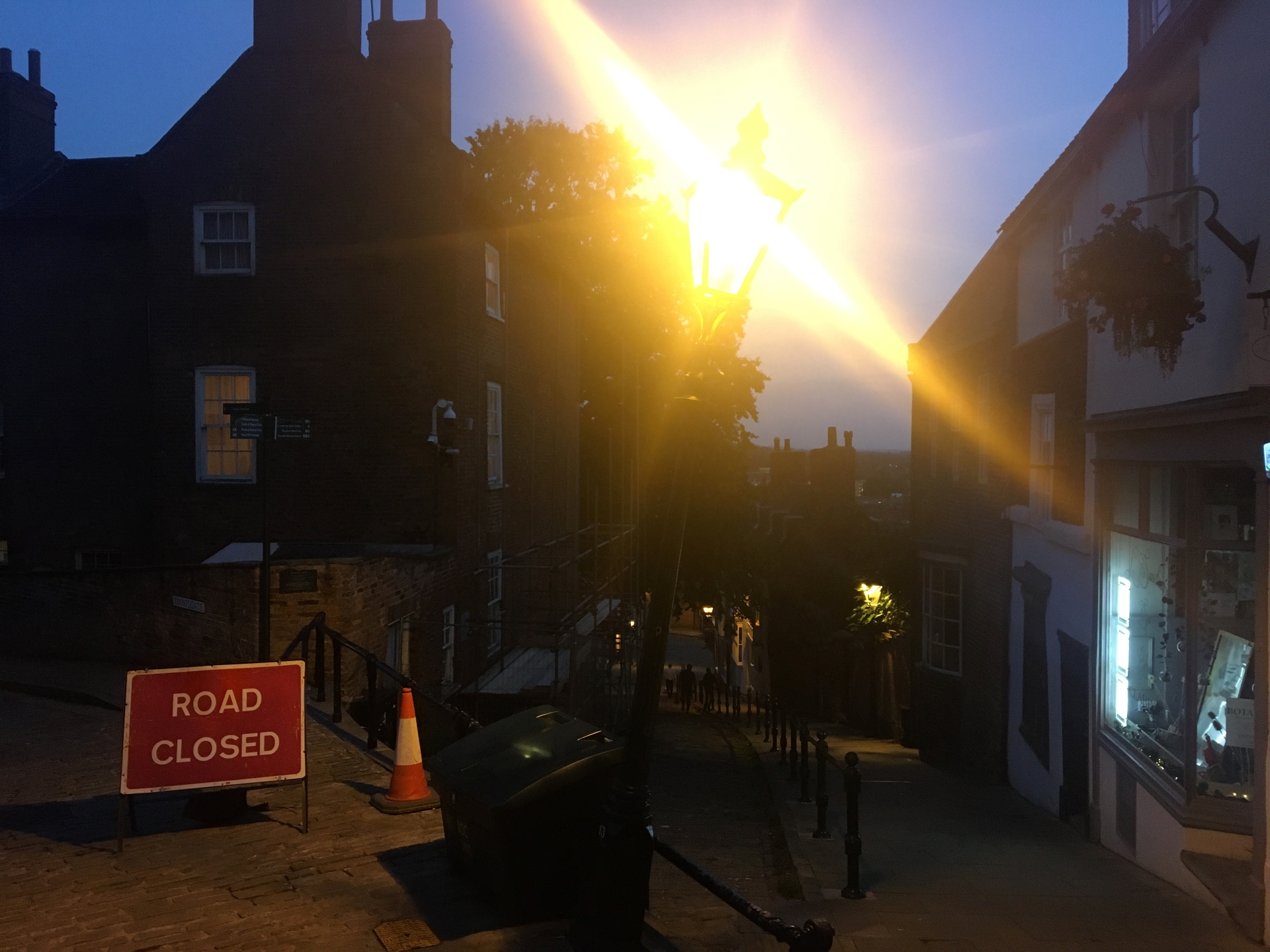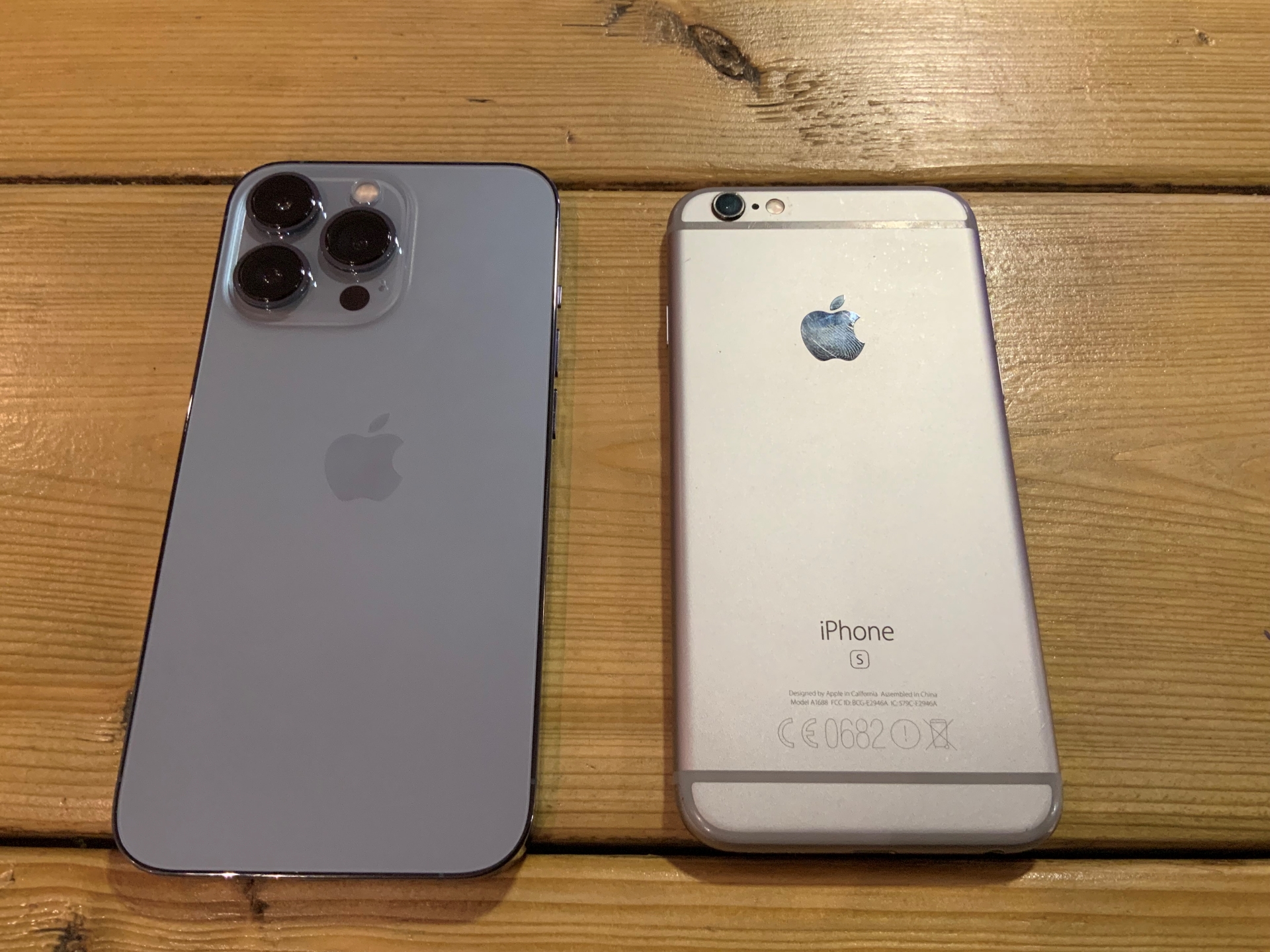I’ve used iOS 15 on an iPhone 6S – here’s how it compares to the iPhone 13 Pro experience
Opinion – worth the wait?

Sign up for breaking news, reviews, opinion, top tech deals, and more.
You are now subscribed
Your newsletter sign-up was successful
I used to upgrade my iPhone every year without fail. Never mind that I'd never use some of the new features – it was the allure of having Apple's latest and greatest handset that mattered.
However, our priorities change over the years, and I came to realize that having the latest and greatest iPhone every year simply doesn't matter.
My epiphany came in 2018, when I upgraded my iPhone 8 Plus to an iPhone X – essentially the same phone, but the X had Face ID instead of Touch ID, alongside a smaller OLED screen compared to the bigger LCD display of the 8 Plus.
Fast-forward three years and I’ve been waiting for a 13 Pro all year, and it feels like my iPhone X has been aware of this – it's been regularly crashing and running slow, and battery life is down to about two hours.
But there are others people who are using even older iPhones that still run iOS 15, and I wanted to see how the experience of using it on the latest and greatest iPhone compares to using it on an iPhone from 2015 – specifically the iPhone 6S.
- How to download iOS 15
- Read our hands on iPhone 13 Pro review
- How the new Focus feature in iOS 15 works
Using an iPhone 6S in 2021
I used to work at a store as tech support, and I remember when the iPhone 6S launched. 3D Touch was the big feature for that line of iPhones, where you could force-press on an icon, and the equivalent of a right-click menu would appear.
With photos and web browser links, you could ‘peek and pop’ to preview the content instead, while you could have animated wallpapers on your lockscreen, which would play when 3D Touch was enabled.
However, the feature never caught on, and has since been reduced to a haptic touch, where it’s now an optional use case for Apple and third-party apps.
Sign up for breaking news, reviews, opinion, top tech deals, and more.
But the other big feature, like any other iPhone launch, were the cameras. The front-facing camera went from 1.2MP to 5MP, able to showcase selfies in greater detail alongside a Retina Flash that could give the camera a flash in darkened areas by lighting up the LCD display and flashing, giving an image more brightness. While the back cameras went from 8MP to 12MP, with the ability to shoot in 4K video.
Using these in 2021, you can tell just from the design and the cameras that these were supercharged iPhone 6 devices from 2014, and using them with iOS 15, they’re still remarkably fast to use, albeit with caveats.
- Check out the best iPhone 13 Pro deals
Taking photos with a 6S and 13 Pro
The cameras between the iPhone 13 Pro and iPhone 6S are night and day, to excuse a pun.
Using Night Mode in the 13 Pro has already transformed how I take photos once the sun sets, and adding in the fact that this can be used on every lens the phone has, is only a bonus.
The iPhone 6S doesn’t have this, with Night Mode only appearing on the iPhone 11 series in 2019, but its detail in the daylight still works well, especially compared to budget Android phones.
I used to do what was called the ‘Cathedral test’ in the old job, where I would compare images of phones around Lincoln Cathedral. I decided to do the same here.

iPhone 13 Pro shots

iPhone 13 Pro shots
iPhone 13 Pro shots

iPhone 13 Pro shots

iPhone 13 Pro shots

iPhone 6S shots

iPhone 6S shots
iPhone 6S shots

iPhone 6S shots

iPhone 6S shots
The results speak for themselves - while many still upgrade every year and see incremental improvements, seeing the difference in quality here just shows that the camera system in the iPhones have only gotten better.
But that’s only half the story for the iPhone 6S.
iOS 15 on a iPhone 6S
This is the earliest iPhone that can run iOS 15, and using a freshly-reset iPhone 6S, there’s still life in this yet.
Taking into account the obvious omission of Face ID and the smaller 4.7 inch screen here, the software still works well, with Focus and widgets able to work as well as it does in the iPhone 13 Pro.
But the one big difference is using Touch ID for ApplePay. It’s much faster and straightforward than using Face ID, especially when using a mask. It makes you yearn for the feature to arrive in the power button for a future iPhone 14, similar to how it’s in the iPad mini and iPad Air devices.
It’s also a night and day comparison when you consider Android phones. Software updates on a variety of devices are few and far between, and still you may buy a phone that only has one Android update left.
For instance, if you buy a Samsung Galaxy Z Fold 2, your next available update may be Android 12, and that’s it.
Patience is a 13 Pro virtue

After upgrading to a new iPhone after four years, it’s great to have the latest and greatest features, not only from this year, but since the release of the iPhone XS in 2018. From the triple-camera design, to Night Mode, to the 120Hz display and the smaller notch of the iPhone 13 Pro, it’s already a favorite model of mine.
But I’m sure that if I upgraded from an iPhone X to an iPhone 11 Pro, the upgrade would have still been significant, but not as major as this leap. Waiting between upgrades is the next best thing now, and while you may be happy on a yearly device cycle, the joy of taking advantage of four years of upgrades is unparalleled.
- Apps that have updated to take advantage of iOS 15

Daryl is a freelance writer and author of two books—The Making of Tomb Raider and 50 Years of Boss Fights. A third book, the follow up to ‘Tomb Raider’, comes out in 2026. Having worked at TechRadar previously as a software writer from 2021 to 2023, Daryl understands how software can benefit users, as well as having an interest in how accessibility features can benefit others.
With over a decade of experience, his work has been featured in Tom’s Guide, SUPERJUMP, Pocket Tactics, Radio Times, The Escapist, and more.
